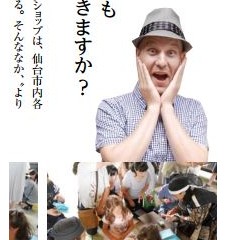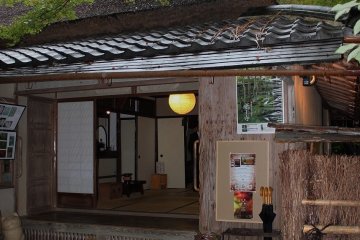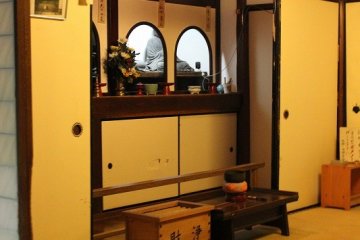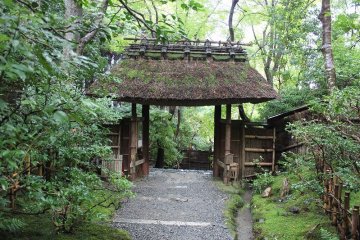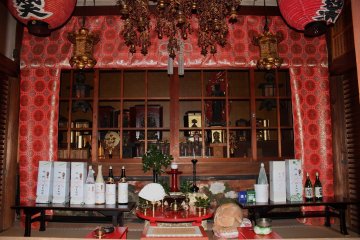Standing quietly on the eastern foot of Mt. Ogura in Sagano, Kyoto, Gio-ji Temple is more of a hermitage than a temple. In ancient times Ryochin, a disciple of the famed priest Honen, set up the temple Oujyo-in (往生院). At first it prospered, but it became obsolete during the Meiji Restoration (1868). During that time, Daikaku-ji Temple preserved the former temple's remaining Buddhist statuary and pagoda as it intended to reconstruct a new temple at the ruins of the Daikaku-ji Temple gate. The former governor of Kyoto, Kitagaki Kunimichi, heard about the story to rebuild the temple, so in response he donated a villa to assist the efforts in 1895. That villa is the building you can find today at Gio-ji Temple. This is the origin of the temple and reason why it has become a Shingon sect sub-temple of Daikaku-ji Temple.
Kitagaki remarked that the name of the temple, Gio-ji, was described in detail in the first volume of the Tale of Heike. However, there is some disagreement to who actually wrote the Tale of Heike. This subject matter was elaborated upon in Yoshida Kenko's work Tsurezuregusa ("Essays in Idleness" 徒然草). His theory claims the written text was penned by Shinano no Zenji Yukinaga (信濃前司行長), but that it was then told to a blind monk which transmitted the story via chanting (*note: a mix of complicated Japanese and Chinese writing was used at this time, thus oral narration was still the primary method of passing on stories to the masses or even the more educated).
It was the end of the Heian period. The impasse aristocracy government could only be jostled with a warrior at the apex of their power. That person was Taira no Kiyomori. He had a natural knack for politics, and was able to manipulate the court to his liking. At the same time, his wild behavior was recorded throughout the Tale of Heike. Kiyomori was said to be hot-headed and not able to read the situation well. Besides that, he had an uncommon appetite for lust. In fact, Minamoto no Yoshitsune's own mother Tokiwa Gozen, who was said to be incredibly beautiful, was made his concubine. If she refused her children would have been executed. Kiyomori soon became notorious for ridiculing others without remorse.
Around that time Kiyomori was invited to a banquet in a residential area by female dancers who were well known in the capital. The women were sisters named Gio and Ginyo. They were daughters of the lady of the mansion. Kiyomori was entranced by the hypnotizing beauty of the two dancers. In no time he began making arrangements for the dancers to move in as mistresses. Kiyomori was 20 at the time. Kiyomori was very much interested in the Gio household and the mother and child soon became blessed with his affluence.
After about 3 years passed, a rumor of a new dancing girl concubine began to spread around Kyoto. Some said she was 16 and originally from Kaga (Ishikawa Prefecture). They said her name was Hotokegozen. A popular saying of the time was that the youthful do not know fear and sell themselves without hesitation (*dancers were often prostitutes) .
One day, Hotokezen was leaving for Kiyomori's residence in Nishihachijo. As Kiyomori and Gio shared a passing romantic gaze, the mansion receptionist called over Kiyomori:
"The dancer called Hotokegozen is at our gate. She is causing a lot of excitement around town. She says she would like you to meet her.."
"Who does she think I am? Does she want to meet me when she is a prostitute? Send for her immediately." Kiyomori shouted angrily.
Overhearing this, he replies in a calm voice to a still furious Kiyomori: "Master, it must not be so. She is not even of age for such things. How about enjoying just a glimpse of viewing her?" (.....continued on part 2.)


